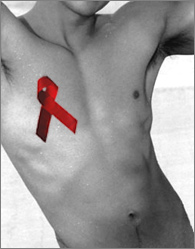A new study conducted at the University of North Carolina (UNC) at Chapel Hill and in Switzerland has shown that HIV, the virus that causes AIDS may be highly contagious before a test confirms a person is positive or the first flu-like symptoms appear.

DCM, Sydney's biggest dance club and one of the city's best-known hard house venues
"The main thing that's new is that we've shown for the first time that sexual transmission can happen readily and very soon after exposure," said Dr Pilcher said in a statement.
This, says researchers, makes it even more important to follow rules for consistent safe sex in order to stop the spread of AIDS. The researcher also highlighted the importance of not engaging in unsafe sex.
Researchers believe that during "primary HIV infection? which is the period shortly after transmission, virus levels in the blood rocket and short-lived flu-like symptoms including fever, fatigue and swollen glands may appear. At this point, while standard tests cannot pick up the HIV virus as the immune system has not yet produced antibodies to the infection, it?s a highly infectious period as high amounts of the virus appear in the genital tract.
"If you engage in unsafe sex, you cannot assume that you are not infected or infectious just because you had a negative antibody test for HIV," says Dr Pilcher. "The most commonly used tests can't show HIV for several weeks." The National Institutes of Health, the UNC General Clinical Research Center, the UNC and Duke Center for AIDS Research, the Swiss National AIDS Research Program, Bristol-Myers Squibb and Boehringer Ingelheim supported the research.
A report on the study appears in the current (Oct 10) issue of the Journal of the American Medical Association. Besides Pilcher, authors include Dr Joseph J Eron Jr, associate professor of medicine at UNC, and six Swiss scientists in St Gallen, Basel and Geneva.
